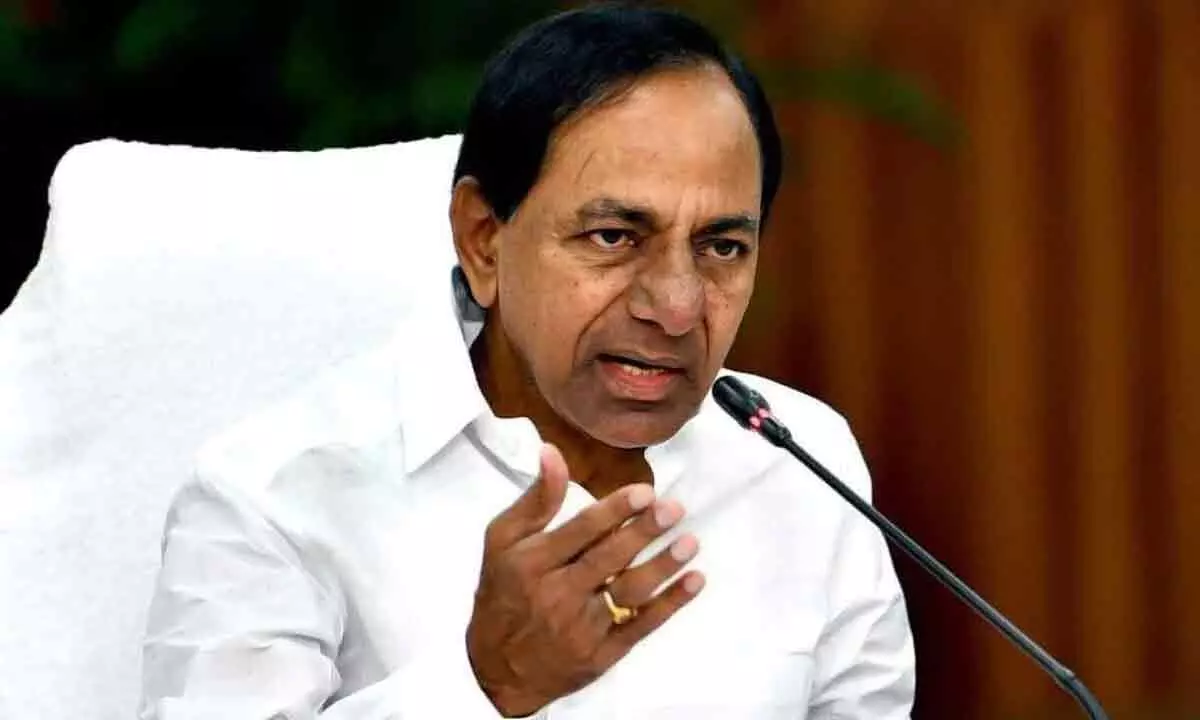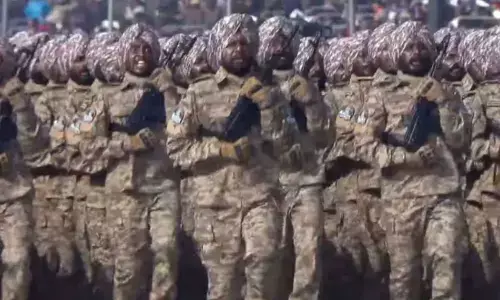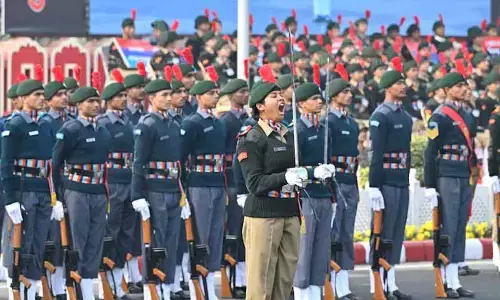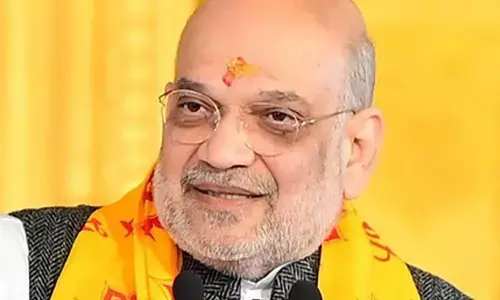KCR's alternative national agenda

Telangana Chief Minister K Chandrashekar Rao
Telangana Chief Minister K Chandrashekar Rao, who is on a visit to Delhi and neighboring states to firm up his proposal for an alternative agenda for the country after meeting a couple of like-minded political leaders and others, hinted at a ‘sensation in national politics’ soon.
Telangana Chief Minister K Chandrashekar Rao, who is on a visit to Delhi and neighboring states to firm up his proposal for an alternative agenda for the country after meeting a couple of like-minded political leaders and others, hinted at a 'sensation in national politics' soon. He also emphasised the need for the centre consulting the states whenever it comes up with new policies in the spirit of cooperative federalism.
The Indian Constitution creates a central government which can move either on the federal or on the unitary plane, according to the needs of the situation. Over a period, because of diverse political features in our country, it looks like we are moving towards extra emphasis on strong unitary features instead of moving towards liberal cooperative federalism.
Prime Minister Narendra Modi, while he was Gujarat CM, had made a strong case against a systematic onslaught on the federal structure that was causing concern. His slogan then was co-operative and not coercive federalism. After he became the Prime Minister, there appears a U-turn in this approach.
Many a times CM KCR's statements in different platforms advocated a strong cooperative federalism in the country. And hence, the present Indian scenario demands a fresh look at the conceptual evolution of cooperative federalism in India and to do away with its inoperative nature in several contexts.
Cooperative federalism has historical roots. During the days of kingdoms in India, we practised federal policies with non-intervention in local affairs. Even the British government was only regulating the work of East India Company but did not intervene in its powers. The Government of India Act 1919 also provided for a federal India called the diarchy. Jawaharlal Nehru's philosophy was "cooperation and consultation with the states." The princely states joining the Indian Union was with the spirit of cooperative federalism.
But what is happening now in India is that the central government continues to keep under its purview the key subjects of importance to states. It needs to take care of just foreign affairs, defence and maintenance of national highways. It should focus its attention on issues relating to national security. Subjects like education, health, rural development, local bodies etc., should be completely transferred to the states.
CM KCR in a recent review meeting said that it is a cheap practice that the union governments from Rajiv Gandhi era to the present Prime Minister have been transferring funds to the villages directly without trusting the state governments. It is not a supportive practice of transferring funds under Jawahar Rojgar Yojana, PM Gram Sadak Yojana, and Employment Scheme (NREGA) etc. to the local bodies directly from Delhi. The states are better informed about the local issues. Many villages and urban bodies are still struggling with lack of power supply and people are living in dark. People are taking to the streets for drinking water and irrigation water needs, the expected growth in education and employment has not been registered. The union government is not concentrating on such important issues and is instead involving in the state affairs, which is not a welcome.
Against this background, KCR announced that he would be soon coming up with an alternative agenda for unification of like-minded political forces to put the nation on the path of development. The agenda may perhaps be chalked out after consultations with political parties, economists, social scientists, farmers and people from all walks of life. No doubt, the change will start from Telangana state. KCR has already begun his efforts for a truly cooperative federalism in the country where the State governments would be empowered to take policy decisions based on local needs, aspirations and demography.
This apart, KCR says that on the lines of Telangana, India, too, needs to be reinvented and reoriented to make it great. Towards this, the best practices across the globe are to be collected and studied making them applicable to the Indian situation. Leveraging country's economy and drafting a policy framework to understand where the country is lagging behind is the need of the hour, according to him. Keeping this in view, he opines that it is absolutely necessary to prepare a national growth agenda or an alternative agenda for the country, taking into account the requirements of different states and various strata of the society.
There is also need for structural changes in the polity. Subjects like reservations shall be with states only as they know better the requirements of people of their state. It's also time now to redefine as to what a state is and what exactly a federal government is. States should be made more powerful and need to be empowered. More and more powers are to be transferred from the center to the states. This is what the true spirit of cooperative federalism. To this effect changes are required in the Constitution.
Several reforms suggested by experts in the centre-state relations have been ignored and the federal sprit has been given the go-by. The Telangana state has reached several milestones in development, welfare, infrastructure and other such sectors. Its schemes and innovative programmes have become a role model for the centre and other states and can be replicated all over. For example, the investment support scheme or the Rythu Bandhu of Rs 10,000 per acre could be taken up at the national level benefiting the 40 crore farmers. The Rythu Bhima and the Dalit Bandhu may also be replicated all over the country.
There is a need to formulate schemes based on the needs of the states. Structural changes in social, judiciary, legislative and administrative areas are required. All these will have to be brought about by leveraging the economy better. We need to find out a way to convert the enormous amount of black money into white money. Tax policy must have better incentives and there must be an enabling mechanism wherein the declared money could be invested in public sectors or in infrastructure development. There is a need to bring such a policy where they will liberally invest. This will boost the GDP level and the economy.
Parliament and state legislatures supremacy as the case may be must be unequivocal. The stumbling blocks that come in the way of this from any corner must be countered and we should not shy away from necessary judicial and other reforms. All is not well with the so-called checks and balances and they landed the country in problems. Any day, the maker of the country is the elected government and the individuals at the helm of the affairs make a difference. Elected government is final. To what extent the government's decisions are to be subjected to scrutiny is debatable and certainly not every aspect.
On more than one occasion, Chandrashekar Rao has proved himself that he is the one who can make a difference in politics in India and who can think out of the box to achieve goals that seldom any leader ever attempted.
Having proved his mettle as a people's leader and an able administrator par excellence, KCR, in the recent past, has been airing his thoughts on the national level issues, especially the federal spirit and cooperative federalism of our country as well as the centre-state relations. And his proposal for alternative agenda certainly strengthens cooperative federalism which the country is in dire need of. It is also time that all like-minded political parties support his idea of alternative national agenda for a better
tomorrow.










